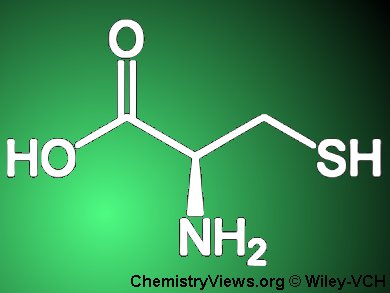Huntington’s disease is a severe neurodegenerative disease whereby the neurons controlling muscles (motoneurons) are progressively lost. Solomon H. Sneyder, Johns Hopkins University School of Medicine, Baltimore, USA and co-workers have demonstrated that a deficiency in cysteine plays an important role in the development of this disease.
The researchers demonstrated that the levels of cystathionine γ-lyase, an enzyme that converts cystathionine into cysteine, are deeply reduced in patients affected by Huntington’s disease. In turn, the reduced levels of cysteine causes oxidative stress thereby inducing the death of motoneurons. It was found, that a cysteine-supplemented diet delayed the onset of neurodegeneration when administered to a mouse model of Huntington’s disease.
Cysteine supplements could, thus, be of therapeutic inportance for patients suffering from Huntington’s disease.
- Cystathionine γ-lyase deficiency mediates neurodegeneration in Huntington’s disease,
Bindu D. Paul, Juan I. Sbodio, Risheng Xu, M. Scott Vandiver, Jiyoung Y. Cha, Adele M. Snowman, Solomon H. Snyder,
Nature 2014.
DOI: 10.1038/nature13136




